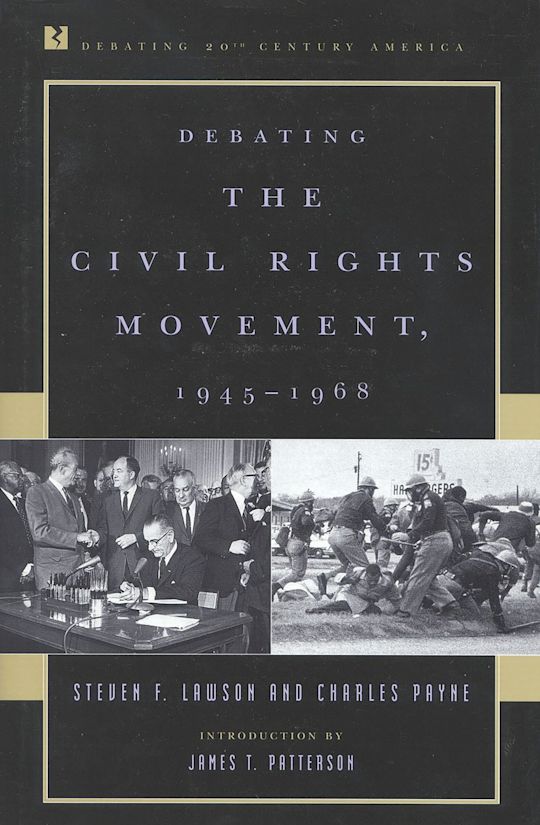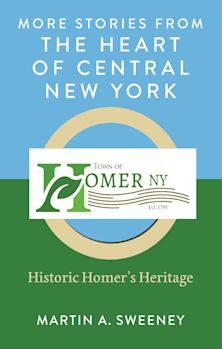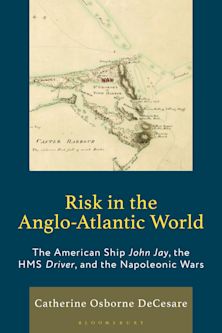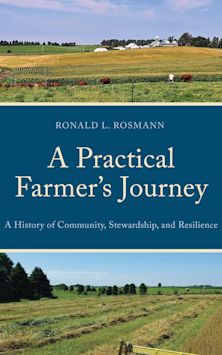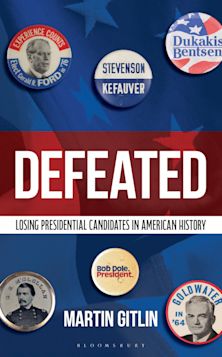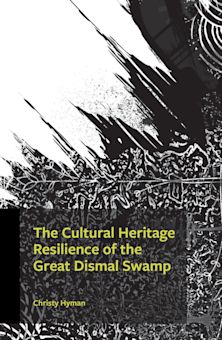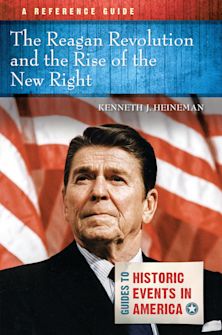- Home
- ACADEMIC
- History
- United States History
- Debating the Civil Rights Movement, 1945–1968
Debating the Civil Rights Movement, 1945–1968
- Textbook
Debating the Civil Rights Movement, 1945–1968
- Textbook
For information on how we process your data, read our Privacy Policy
Thank you. We will email you when this book is available to order
Buy from Bloomsbury eTextBooks
You are now leaving the Bloomsbury Publishing website. Your eBook purchase will be with our partner https://www.vitalsource.com.
Your credit card statement will show this purchase originating from VitalSource Technologies. They will also provide any technical assistance you might require.
You must sign in to add this item to your wishlist. Please sign in or create an account
Description
No other book about the civil rights movement captures the drama and impact of the black struggle for equality better than Debating the Civil Rights Movement, 1945–1968. Written by two of the most respected scholars of African-American history, Steven F. Lawson and Charles Payne examine the individuals who made the movement a success, both at the highest level of government and in the grassroots trenches. Designed specifically for college and university courses in American history, this is the best introduction available to the glory and agony of these turbulent times.
Table of Contents
Part I: Debating the Civil Rights Movement: The View from the Nation
Chapter 1: Excerpt from To Secure These Rights: The Report of the President’s Committee on Civil Rights (1947)
Chapter 2: '96 Congressmen’s Declaration of Integration (March 11, 1956)
Chapter 3: Dwight D. Eisenhower’s Radio and Television Address to the American People on the Situation in Little Rock (September 24, 1957)
Chapter 4: Excerpts from Hearings before the United States Commission on Civil Rights, Montgomery, Alabama (December 8 and 9, 1958)
Chapter 5: Memorandum to Mr. Belmont from A. Rosen Concerning the Racial Situation in Albany, Georgia (January 17, 1963)
Chapter 6: Memorandum to the Attorney General from the Director of the FBI Concerning the Racial Situation in Albany, Georgia (January 18, 1963)
Chapter 7: John F. Kennedy’s Radio and Television Report to the American People on Civil Rights (June 11, 1963)
Chapter 8: Letter from Wiley A. Branton, Project Director, Voter Education Project, to Dr. Aaron Henry and Mr. Robert Moses (November 12, 1963)
Chapter 9: Lyndon B. Johnson’s Special Message to the Congress: The American Promise (March 15, 1965)
Chapter 10: Excerpt from Tom Wicker’s Introduction to the Report of the National Advisory Commission on Civil Disorders (March 1968)
Part II: Debating the Civil Rights Movement: The View from the Trenches
Chapter 11: Excerpt from Ella J. Baker’s “Bigger Than a Hamburger” (June 1960)
Chapter 12: Handbill, Albany Nonviolent Movement (November 9, 1961)
Chapter 13: Chronology of Violence and Intimidation in Mississippi, 1961 (1963)
Chapter 14: Student Voice Editorial and Cartoon on the FBI (November 25, 1964)
Chapter 15: Poster from East Selma, Alabama, from the Student Voice (August 30, 1965)
Selected Readings
Product details
| Published | 21 Dec 1998 |
|---|---|
| Format | Ebook (Epub & Mobi) |
| Edition | 1st |
| Extent | 176 |
| ISBN | 9780742576346 |
| Imprint | Rowman & Littlefield Publishers |
| Series | Debating Twentieth-Century America |
| Publisher | Bloomsbury Publishing |
About the contributors
Reviews
-
This edifying compilation of diverse documents and the rich Lawson/Payne debate is certain to stimulate lively exchanges in and out of classrooms about movement origins, gender and class issues within, and the politics of naming. Debating the Civil Rights Movement is an important book that forces us to rethink the meaning of leadership in, arguably, the most significant movement for social change in 20th century America. Debating the Civil Rights Movement is a passionate dialogue of interpretative difference by two exquisite historians. Steven Lawson and Charles Payne's insightful and provocative essays bracket astutely selected primary documents that challenge us all, students, scholars, and general readers to ask new questions and revisit old assumptions. Lawson and Payne have given to us an uniquely exciting, useful, and yes, unsettling, book.
Darlene Clark Hine, Michigan State University
-
As President Clinton's recent Initiative on Race makes clear, 'race' has for centuries been a central contradiction within American democracy life. Payne and Lawson carefully document the richly diverse history of the struggle to desegregate American society. This outstanding volume illustrates fully the accomplishments and limitations of the Second Reconstruction. Debating the Civil Rights Movement makes an important scholarly contribution to our understanding of a shared racial history.
Manning Marable, M. Moran Weston/Black Alumni Council Professor of African-American Studies, Columbia University
-
This splendid analytic treatment of the civil rights era should be required reading for undergraduates and scholars alike.
John Dittmer, DePauw University
-
A useful, readable, and provocative book from a series that aims to bring important current historiographical and methodological debates into undergraduate classrooms. Debating the Civil Rights Movement is so well done, however, that it is also highly recommended for nonspecialist graduate students and even professors looking to brush up on their civil rights historiography.
Derek Catsam, Ohio University, H-Pol
-
This splendid volume is the first of a new series that takes a fresh approach to the task of presenting different viewpoints about our recent past. This volume consists of just two essays written from opposing perspectives but comprehensive in their treatment of the subject under discussion. Indeed Lawson and Payne are such fair-minded and careful scholars that many readers may carry away the notion that not as much separates them in their debate as is officially claimed. That the excellence of the essays mutes some of the conflict between them does not diminish the value of this challenging approach to twentieth-century America.
Journal of Southern History
-
These are both excellent essays. They will make an interesting book, a wonderful book to teach, and a superb learning tool.
Harvard Sitkoff, University of New Hampshire









